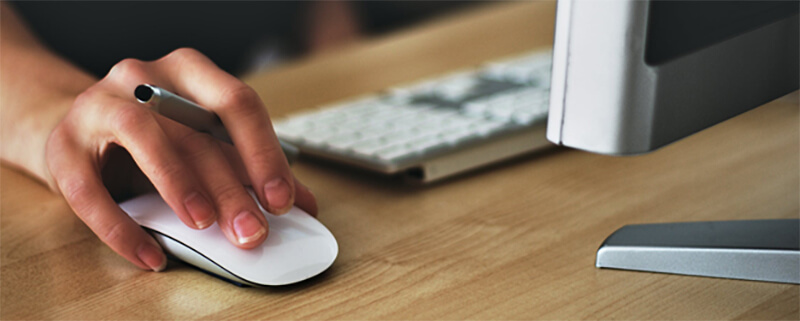Productive Things to Do When You Are a Freelancer
See also: Top Tips for FreelancersWorking as a freelancer can be liberating. As a freelancer, you set your own hours, decide what work you want to accept, and have the ability to work from anywhere. Being a freelance worker comes with a lot of freedoms, but it is also a lot of hard work.
Without any formal structure to guide you, it can be easy to fall off track or leave details behind. When you work as a freelancer, it is up to you to get the work done. A productive mindset is not optional as a freelancer. If you are not productive and diligent, work will never be finished.
The freedom of being freelance can also be a trap, but with the right habits you can enjoy the freedom while being productive. Here are a few tips and tricks to keep you productive when working freelance.
Set Work Hours

One of the most difficult aspects of working as a freelancer is time management.
The art of balancing work time and personal time is not unique to freelancers, but the balancing act is harder for people working freelance. Since there is no formal structure or set work time when you are freelancing, it can be hard to separate work time from personal time. As a freelancer, you don’t have a manager telling you what time to be at work and what time to go home. You are able to decide for yourself when work time starts and ends, but be sure you actually set start and end times.
There are a few reasons that setting start and end times for work is important. Having a set daily routine helps with accountability and focus. By establishing a time to start and end work, you are giving yourself a reason to get out of bed every morning. It can be very easy to stay in bed too long if you don’t have a solid reason to get up.
Setting a time to start work is important but setting a time to end work is just as, if not more, important. It is entirely possible to become absorbed by work and lose track of time, which is something that can happen in traditional office jobs as well. However, when freelancing, there is no one telling you when to stop working. Unless you give yourself a time to stop working, you may carry on working for far too long. Not separating work time from personal time means the day bleeds together so everything feels like work time. It is far healthier to be “done” with work at the same time every day. Turn off work so you can enjoy the freedom of being a freelancer.
See our pages: Work-Life Balance and Avoiding Burnout for more information.
Real Clothes
As a freelancer, you likely work from home. It might be tempting to work in your pajamas all the time since you don’t have to go outside or be around other people to get work done.
Should you be working while sick or something similar, working in your sweats makes sense, but for everyday it is better for you to actually get dressed. Getting dressed, putting on real clothes, helps distinguish between work time and personal time. You are more likely to focus on work when dressed in work clothes. Humans associate items with situations. Work clothes are associated with work while pajamas are associated with sleep or leisure.
You can trick your brain into being more productive simply by putting on work clothes.
Break Time
Breaks are important. Breaks are so important they are required by law.
At a workplace such as a retail store, you as an employee are entitled to at least one break during an average shift. Labor laws requiring breaks vary by country, state, company, and location, but everyone seems to agree that taking breaks at work is important.
As a freelancer, you don’t have labor laws or a boss telling you when to take a break. Set daily goals for yourself and determine when to take a break after finishing a task or reaching a good pause point. Keep track of time so you don’t accidentally work for hours on end without a break.
Email Organization
Email is one of the most important tools for work of any kind. Freelancer or not, you cannot afford to leave your inbox in disarray. As a freelancer, email is likely where all your professional communication takes place. If you do not have an organized inbox, you risk missing work opportunities, client questions, assignment instructions, and more. Take the time to clear out old emails and organize the rest.
Email is also where you put your personality forward. Communicating with clients is when your clients are most aware that you are a human, not a machine. Keep conversation professional, but don’t be afraid to show who you are. By making human connections with clients, they are more likely to remember you fondly. People want to deal with people, so by humanizing yourself, you are bringing a personal element to your business.
Further Reading from Skills You Need
The Skills You Need Guide to Self-Employment and
Running Your Own Business
If you are thinking about running your own business, or already do so, but feel that you need some guidance, then this eBook is for you. It takes you through self-employment in easy steps, helping you to ensure that your business has more chance of success.
The Skills You Need Guide to Self-Employment and Running Your Own Business is the guide no new or aspiring entrepreneur can afford to be without!
Based on our popular self-employment and entrepreneurship content.

Financial Tracking and Planning
As a freelancer, finances can be complicated, as you are essentially your own accountant.
Taxes are not automatically taken out of your paychecks, meaning you are responsible for paying taxes every year. The best way to prepare for paying taxes is to be organized throughout the whole year. Track your expenses like food, rent, and transportation so you know how much you spend compared to how much you earn.
Due to the nature of freelancing, your income may not be 100% predictable, but you can calculate a monthly average. By keeping track of your finances, you reduce the number of unexpected expenses and financial surprises.
It is not possible to eliminate the possibility of surprise expenses, of course. All you can do is be prepared for when an unexpected expense arises. This is where saving money pays off. Income is not guaranteed for a freelancer, so having money in reserve is important. Saving what money you can ensures future financial hardships will not be as difficult to handle.
Working as a freelancer can be liberating, but with the freedom comes new problems. Keep track of work time so it doesn’t mix with personal time. Keep everything organized, from your email to your finances so that your business can run as smoothly as possible.
About the Author
Nick Rojas combines 20 years of experience working with and consulting for small to medium business and a passion for journalism to help readers grow. He writes about technology, marketing, and social media for the aspiring entrepreneur.
Continue to:
Working From Home
Invoicing for Freelancers


